TV Interview!

Interview with Tom Stevens and Catherine Bell of “Jailbreak Lovers” on Lifetime by Suzanne 6/1/22
This was from a LIfetime press day covering three different movies. It was great to speak to Catherine Bell, who has been on so many series and in many movies. I’ve spoken with Tom Stevens a few times before. They were both great in this movie. Even though the movie is about two felons, it has a humorous side to it that improves on the story. I enjoyed it. Also, there are many dogs, which elevates it even further.
MODERATOR: Wonderful. Well, thank you all for coming to our Summer 2022 Virtual Press Day. Please join me in welcoming the stars of “Jailbreak Lovers.” We have with us today executive producer and star Catherine Bell along with her costar Tom Stevens. First up is Tamara.
QUESTION: Hi, how are you?
TOM STEVENS: I’m good, Tamara, how you doing?
QUESTION: I’m good. Thank you. So Toby always followed the rules and did what was expected of her. Can you guys identify with the character’s desire to be carefree, coloring outside the lines, not being perfect, or simply being wild and free for once?
CATHERINE BELL: Well, I think probably anyone could relate to that. Hopefully, people don’t resort to this sort of a, (laughs) craziness but, you know, I think there’s always that idea of, like, “Ooh, what if I, you know, broke the rules and did something wild for a moment.” I think that’s what – I wanted to at least give a sense of like – People are always going why would someone do this? Why would someone break the law and do something like this and, hopefully, we give you guys a little insight into where that comes from.
QUESTION: Thank you.
TOM STEVENS: Yeah, and I agree. I think that every person needs to kind of check in on their life at some point and go am I coloring too within the lines, o do I need to go outside of my comfort zone, because I think out of your comfort zone, outside your comfort zone is where you really learn who you are.
CATHERINE BELL: Yeah.
QUESTION: Thank you.
MODERATOR: Wonderful. Thank you. Up next, we have a question from Suzanne. Suzanne, you may feel free to unmute.
QUESTION: Hi. Catherine, since you were a producer on this movie, did you have any influence over the tone of the movie? It’s a little less serious than most Lifetime movies I’ve seen.
CATHERINE BELL: You know, Katie Boland is our beautiful director. She brought her vision to this, which was this playful and high-energy and sexy and fun spirit. You know, I really — I think Tom and I both really enjoyed making this movie because it had all of that in it. It was just this fast-paced and just wild adventure that these two were on and, you know, definitely you have some say as a producer, but I got to say it all just kind of came together magically. There wasn’t a whole lot to do except become this character on my end, you know.
QUESTION: And that same for you, Tom?
TOM STEVENS: Yeah, no, I mean, I didn’t have the same kind of hand in it as Catherine did, but I mean it was what we brought kind of fit exactly what Katie wanted, what Catherine and I were doing, and it was just so fun to just — Like we shot so many scenes kind of like back to back to back to back and we always found like a fun way of connecting as these two people, because in the prison it was like a secret love, and then when we were out in the cabin it was more spontaneous and free, and every single time Catherine and I brought like a really strong connection and, yeah, it was just always fun. You know, every scene was always fun to shoot.
QUESTION: Well, thanks. It was fun to watch.
CATHERINE BELL: We joke we want to do a sequel. I don’t think it’ll happen. They’re not together, but we had too much making it.
TOM STEVENS: Yeah.
QUESTION: As long as you have dogs. That’s the good thing.
CATHERINE BELL: Right, exactly.
TOM STEVENS: Prison pen pals and dogs.
QUESTION: Thank you.
MODERATOR: Wonderful. Thank you, Suzanne. Up next we have Jamie. Jamie, you may feel free to unmute.
QUESTION: Hi, thanks for talking to us today. So can you kind of talk about when you’re doing something that’s based on real people, like, how — Can you talk about balancing kind of what you pull from that versus what you’re able to creatively add from yourself, for both of you?
CATHERINE BELL: Tom, you go.
TOM STEVENS: Oh, you want me to go.
CATHERINE BELL: Yeah.
TOM STEVENS: Yeah, Jamie, good to see you again.
QUESTION: You too.
TOM STEVENS: Yeah, it’s I think with John, he — like with Maynard, uh, there wasn’t a lot about him. There’s kind of the story. There’s a lot of Moll and like of everything that she went through, but for John it was kind of more free for me to just bring the foil to her husband, do you know what I mean? Like I had to represent something that was something that she was missing in her life, and it was a more free experience to build the character rather than actually like, you know, having interviews that I could bounce off of, like Catherine obviously had.
CATHERINE BELL: Yeah. I, on the other hand, had a lot of interviews, and I watched all the ones that I could find of Toby. Obviously, I don’t look anything like her so I gave that up quickly. But there’s an essence to her that I tried to get. You know, there’s just she’s got that little bit of the Kansas accent and, yeah, just this sweet woman who really just was totally taken by surprise by this guy, and it just completely altered the course of her life. But, yeah, it was a lot of fun trying to become this woman who is very different than myself.
QUESTION: Thank you so much, both of you.
CATHERINE BELL: Thank you.
TOM STEVENS: Thanks, Jamie.
MODERATOR: Thank you, Jamie. Up next is Mike Hughes. Mike, feel free to unmute.
QUESTION: Okay. There we go. Okay, cool. Probably shortly after you finish this another real-life case like this came up in Alabama where someone escaped with (inaudible). I was wondering did this give you like special interest in it? Did you kind of follow that news story extra special? Do you may root for them or anything like that?
CATHERINE BELL: I mean, you know, yeah, it was unbelievable that that happened. It was like, okay, life imitating art imitating real life, you know. It’s interesting that this happens a fair amount, you know, that these guys are in this unusual situation in a prison and fall for each other. The idea for me of crossing that line and going, “Yeah, let’s break out of jail,” I mean, really, you’re never going to get away with it, you know. That one ended very tragically but, yeah, it’s just fascinating.
QUESTION: You didn’t root for them —
TOM STEVENS: Yeah.
CATHERINE BELL: What’s that?
TOM STEVENS: Were you rooting for them, Catherine?
CATHERINE BELL: Was I (laughs), I mean, I don’t think — no, I wasn’t really thinking about it either way. It was very, very sad, of course, how it ended but, yeah, I would have preferred a happier ending than that, for sure.
TOM STEVENS: Yeah. And we kind of tell – we kind of tell the fictitious fun side of this, and I mean the true story between Toby and John is, you know, a little darker than this like in reality than the story that we told, and I’m sure that that story was darker, too. So, I mean, we can have with this because we’re making a movie about it but, you know, these people were going through something. Yeah, it’s more serious when it’s real.
QUESTION: Okay. Thanks.
MODERATOR: Wonderful. Thank you, Mike. Up next we have Jay Bobbin. Jay, feel free to unmute.
QUESTION: Hi, folks. Hi, Catherine. How are you?
CATHERINE BELL: Hi, Jay.
QUESTION: Hi, good to see you.
TOM STEVENS: Hi, Jay.
QUESTION: Catherine, question for you. You’ve done non-edgy for so many years now. To step back into something that is decidedly edgy, an actor acts, obviously, that’s their profession, but was it an easy thing for you or did it take working up to this a little bit having done Cassie for so many years?
CATHERINE BELL: Yeah, you know what? It’s always challenging to me, which is probably why I love acting so much. It’s never just like, oh, a piece of cake. Like it’s like, oh, who is this person, and in the beginning you don’t know who they are or how to become them and watching her interviews and kind of just trying to work on that was a beautiful challenge. I really loved it – really, really love stepping into this. And, yeah, edgy, edgy and also a very kind of withdrawn, like kind of toned-down person as well, someone who’s not so confident or whatever. So it was just a lot of fun for me to play all of those things.
QUESTION: Thanks a lot.
TOM STEVENS: Yeah, it was fun to witness, actually. It was fun to watch you build the character, yeah, yeah.
CATHERINE BELL: Thank you. We had so much fun together.
TOM STEVENS: I know.
MODERATOR: Thank you, Jay. Up next we have “Starry Constellation Magazine.”
QUESTION: Well, Tom, they say you should never work with ids and animals onscreen, and you worked with a number of dogs. Talk about the training you went through for dog training.
TOM STEVENS: So I’m an advocate for Cesar Mila and everything that he does with behavioral science and dog science, and I have a dog of my own that I have put through a rigorous training, and it comes naturally to me to be around animals and to be like an alpha or like a calm sort of presence with them. So that wasn’t hard for me. What was when the dogs didn’t care that I was a calm presence or authoritative presence, and they were like my trainer’s behind the camera, and I could do whatever I want right now for the next thirty seconds while the cameras are rolling, and he starts eating a toy in the middle of our scene. So there’s like there’s certain things that you can’t control when like a dog’s just on the side, and he just kind of starts doing his own thing, but there’s like a lot of things that you can do to just be like the calm presence for the dogs that they respect. They say don’t work with animals because animals are in the moment, and the audience will always be drawn to them, so it kind of forces you to be in the moment with the dog, and then it’s interesting for the audience to watch.
MODERATOR: Awesome. Thank you. Up next we have Cynthia Horner.
QUESTION: Hello.
CATHERINE BELL: Hi.
TOM STEVENS: Hi, hi, hi.
QUESTION: I would like to ask both of you this question what is a memorable behind the scenes moment that you can tell us about when you were filming?
TOM STEVENS: Hm.
CATHERINE BELL: Hm.
TOM STEVENS: There were a lot, there were a lot.
CATHERINE BELL: I instantly thought of the car chase stuff. That was just so much fun.
TOM STEVENS: That was so much fun.
CATHERINE BELL: Yeah. Actually, driving and then on the top of the truck where they’re towing you and you’re pretending there’s so much going on. We had some good laughs.
TOM STEVENS: And getting arrested. I think I loved the feeling as when we got out of week one, when we got out of the prison. I mean we were shooting a prison movie so a lot of it had to be done on location in this corrections facility, and it felt very much like repeated scenes, like we were doing like similar scenes over and over and over again in this box, and then when we got out of that week it was like this freedom just opened up, and it really felt like the characters got to like go and see new places, and go to different restaurants, and do all this stuff. It was very much what the character is going through. So I love that like transition into the Toby and John being free period.
CATHERINE BELL: True. I also really loved all the stuff in the cabin. It was just such a tiny, little cabin and our whole crew really bonded. Just it was, you know, just — It was Halloween, too, right, and the crew came in with the crazy costumes on and we were in our Toby and John costumes —
TOM STEVENS: In our little, yeah — And it like nearly drowned us in rain. It was pouring rain so hard. It was like flooding around the cabin, it was crazy. And then our DP is in a Sumo suit, and it was hilarious.
QUESTION: Wow, you guys had great stories to tell. Thank you.
TOM STEVENS: No worries, Cynthia.
CATHERINE BELL: Thank you, Cynthia.
MODERATOR: Wonderful. Thank you, Cynthia. Up next we have Rick Bentley. Rick?
QUESTION: Hi, can you hear me?
CATHERINE BELL: (Inaudible @ 00:14:32).
QUESTION: Great. I’m sorry. Hey, Catherine, I’m just curious. This sort of ripped from the headlines, it’s something that’s been going on for years, and obviously there’s a big audience for that out there, do you think it’s a situation of people being sort of living vicariously through these wild moments or is it there by the grace of God goes me?
CATHERINE BELL: Oh, man. You know, I’m sure it’s just that natural curiosity that all humans have of like what is going on in someone’s else world, you know. And, yes, this is a crazy world. It’s something that, hopefully, most people will never experience, and then there’s that other, you know, the concept of what were thinking? Why would somebody do that? So, hopefully, they get a little taste of that with what Tom and I did, you know, just the how they fell in love and what led this to this crazy idea that they might get away with running away together, you know.
QUESTION: Thank you.
CATHERINE BELL: Thank you.
MODERATOR: Awesome. Thank you, Rick. Up next is Luaine Lee. Luaine.
QUESTION: Yeah, Catherine, you were talking about the challenge and how you really adore the challenge in acting, and you’ve been doing it a long time, so what is it that you like best about acting and television, and what do you like the least?
CATHERINE BELL: In television as opposed to film you mean or just in general, acting?
QUESTION: Well, just in general acting.
CATHERINE BELL: Yeah. I think I love so much about it. I love the process. I love the finding the character, and as I mentioned, the challenges of that, it keeps me on my toes and always wanting to improve and be better and even up until the scene is over, you’re still okay, “Well, the next take I want to try this. I want to do that. I want to make this better or different.” I love the camaraderie, and there’s just such a sense of family on these shows that you do together, movies, shows, whatever. You just meet such beautiful people, and so much I love about it. I love the effect it has on people when they’re watching it. I think probably I love the adventure of travel and going to different locations, but sometimes that’s challenging for my family, you know, just to be away so much, so that’s probably, if I could say here’s something I don’t like about it, sometimes that gets challenging. But, again, you just — I’ m so grateful for what I get to do, so I got no complaints.
QUESTION: So what’s the worst part of it?
CATHERINE BELL: Yeah, I think that, you know, being along in a hotel room for weeks at a time, especially in COVID. There was one stretch I took my son to Toronto for “Good Witch”. It was thirteen weeks away from home. I couldn’t go back and forth because of the travel quarantine. That was intense.
QUESTION: Oh, wow. Thank you.
CATHERINE BELL: Yeah, thank you.
MODERATOR: Thank you, Luaine. And then we have Steve (Gitmo @ 00:17:26). Steve?
QUESTION: Hey, how are you guys?
CATHERINE BELL: Hey, good.
TOM STEVENS: I’m good.
QUESTION: Good. I just wanted to ask how familiar were you or at all familiar with this story? Was it all kind of news to both of you when you got the script?
CATHERINE BELL: I haven’t heard of it at all. When I started telling people about it a lot of people remembered seeing it on the news. It was on “Dateline” and “Anderson Cooper” and all of that, but I hadn’t heard of it at all. You, Tom?
TOM STEVENS: Yeah, no, same. The escaping out of prison in a dog crate. I think it maybe a rang a bell but maybe I’m like, yeah, maybe that’s just a logical way to sneak out of prison. But the case itself I hadn’t heard anything about it, then I started reading the script, and it was just so fun.
CATHERINE BELL: Yeah.
QUESTION: And, Tom, can you actually fit in a dog crate?
TOM STEVENS: Easily, easily. That dog crate was too easy to fit into. I wanted a smaller one. I wanted to do contortion, you know.
QUESTION: Thanks so much.
TOM STEVENS: Thank you.
QUESTION: Awesome. Thank you. And we’re going to be wrapping here momentarily but I see two more hands are up. Jamie from SciFi Vision, did you have another question?
QUESTION: Yeah, I can go again. I was going to ask about the dog crate, but so what did the two of you learn about yourselves from working on this show either as performers or just as people in general?
CATHERINE BELL: Ooh.
TOM STEVENS: Ooh.
CATHERINE BELL: Wow. Tom, do you want to answer? I want to think about that.
TOM STEVENS: I think what I learned about myself was it’s — With all the challenges that came with this there’s a lot of layers to John and playing John, and when I ever felt like I was kind of lost in it all I knew I had to do was connect with Catherine, and I don’t know if I learned that about myself, but I did learn that I can trust in Catherine whenever I feel like I’m lost in a scene. Is that me learning something? I don’t know. I learned that about Catherine.
CATHERINE BELL: Hm, thank you. Yeah, I had such an incredible time working with you and our connection. It was just really, really special; really, just like you said, you just look in your eyes and it was like all there, and I don’t know.
TOM STEVENS: Yeah.
CATHERINE BELL: It was probably just a great realization that I can do this sort of a role, which was so different for me and being able to trust in you and just making that happen. It was so magical.
TOM STEVENS: Yeah.
QUESTION: Well, thank you and I enjoyed it, so.
TOM STEVENS: Thank you, Jamie. We loved it, too.
MODERATOR: Awesome, and now our final question is from Mike Hughes. Mike?
QUESTION: Yeah. I’ll just ask real briefly, all your impressions of working when you were in the correction facility there, it looked like it wasn’t a high security one. It looked like it was maybe medium or a low-security facility. Nothing struck you about it there and did you get a chance to interact with the prisoners at all? Were they friendly to you? Just give us your overall impressions.
TOM STEVENS: Yeah.
CATHERINE BELL: Yeah. Well, it wasn’t an active prison, so it was actually shut down. So, but still I, for me, it was very — And, Tom, you were the one in the cell, but so cold, so impersonal. I can’t even imagine being in a cell like that for years or for life. It’s just wow, where I really just realized what that experience could be like, just a little taste of it.
TOM STEVENS: Yeah. Again, it’s an old youth center, so it’s a youth correction center in Burnaby that we were shooting in and all the other prisoners were background so, you know, not actual prisoners, but I did get a chance on my other show in Halifax I got to talk to a lady on our crew who had spent four months in prison that year on a charge that she was serving from years prior. It just all caught up with her, and she’s a good friend of mine and we sat down and just like hatch — She gave me as much insight on what living in prison was like, and I just asked for words that would come up in her mind every day, like what’s something that you would think every single day, and frustration is a big one, and you can feel frustrated places like that because it, like Catherine said, it’s so confined and so isolating, and there’s no time, and you just — It’s very plain and uncomfortable. Like there’s no cushions. So you can imagine a human being whose mind needs stimulation become completely frustrated in a situation like that.
QUESTION: Okay, thanks.
MODERATOR: Thank you. And thank you, Catherine and Tom for joining us today. “Jailbreak Lovers” premieres Saturday, July 2nd, at 08:00 p.m., seven Central only on Lifetime. Stay tuned for “He’s Not Worth Dying For” in a moment.
MORE INFO:
Official Lifetime Site and Preview
Inspired by a true story, Jailbreak Lovers follows Toby (Catherine Bell), a woman who always played by the rules. Toby never ran a red light, married the only boy she ever dated, raised a family and went to church. She did everything she was supposed to do. When Toby loses her job and starts a non-profit to rehabilitate abused, rescued dogs at the local prison no one could have anticipated that she would end up on the run, shacked up with her younger lover John (Tom Stevens), a convicted murderer. The star-crossed lovers hatch a plan to break John out of prison by smuggling him out in one of the dog crates, sparking a federal manhunt.
Jailbreak Lovers is produced for Lifetime by Crate Productions Inc. Catherine Bell, Angela Mancuso, Stacy Mandelberg and up-and-coming director Katie Boland are executive producers. Supervising producers are Oliver DeCaigny and Tom Stanford. Boland directed from a script by Anne-Marie Hess and Jodie Burke.
Proofread and Edited by Brenda
Back to the Primetime Articles and Interviews Page

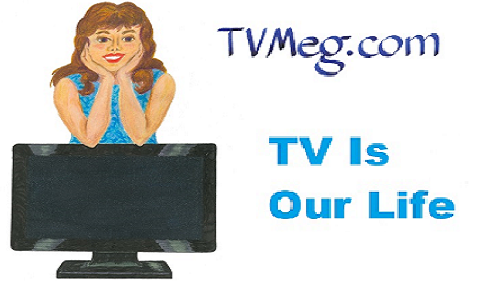

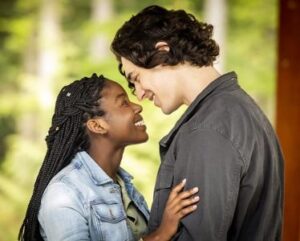
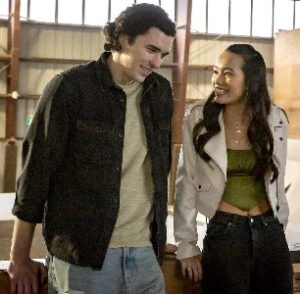
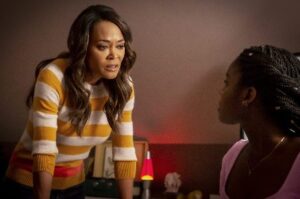 MODERATOR: Thank you. We also have some pre-submitted questions from journalists who could not be here today. This question is for Hilda. Hilda, you have some pretty intense scenes with Robin Givens who plays your mother in the movie. What was it like working with a veteran actress, and did she give you any advice or were there any fun times together on the set?
MODERATOR: Thank you. We also have some pre-submitted questions from journalists who could not be here today. This question is for Hilda. Hilda, you have some pretty intense scenes with Robin Givens who plays your mother in the movie. What was it like working with a veteran actress, and did she give you any advice or were there any fun times together on the set?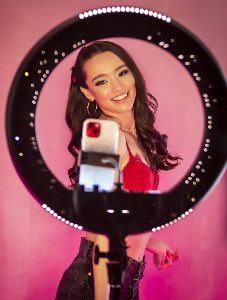 RACHEL BOYD: Thank you.
RACHEL BOYD: Thank you.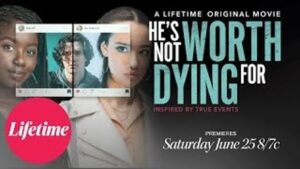
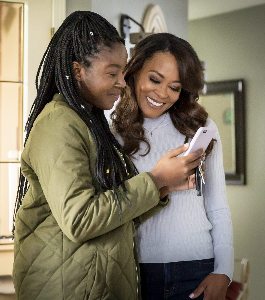

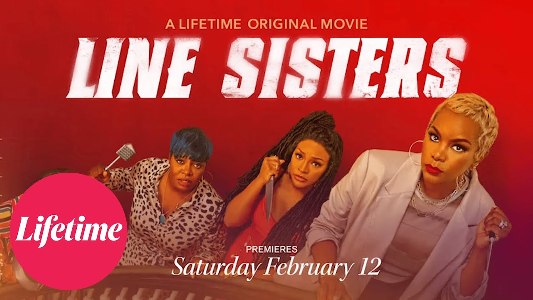

 Eugene: Oh, we filmed on an actual boat. This was an actual boat, and we were on the actual water. And I was not excited about it, because I can’t swim, and I don’t like boats. So, this was a lot of faith. They kinda lied to me. They kind of lied to me a little bit and didn’t tell me we’re going out on the water. Then, they kind of let it out that, “Oh yeah, we’re getting on the water,” and I’m like, “What are you talking about?” [unintelligible] on a boat. They’re “Like no, we got to go out.” Yeah.
Eugene: Oh, we filmed on an actual boat. This was an actual boat, and we were on the actual water. And I was not excited about it, because I can’t swim, and I don’t like boats. So, this was a lot of faith. They kinda lied to me. They kind of lied to me a little bit and didn’t tell me we’re going out on the water. Then, they kind of let it out that, “Oh yeah, we’re getting on the water,” and I’m like, “What are you talking about?” [unintelligible] on a boat. They’re “Like no, we got to go out.” Yeah.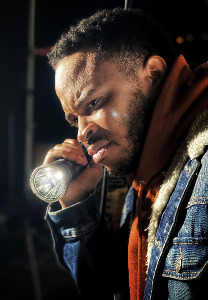 Eugene: It was sixteen days. I could be wrong. I’m trying to remember– I think it was sixteen days. And it was all night. All night shoots. So, it was switching straight from [day] and that’s it. So [unintelligible] every day.
Eugene: It was sixteen days. I could be wrong. I’m trying to remember– I think it was sixteen days. And it was all night. All night shoots. So, it was switching straight from [day] and that’s it. So [unintelligible] every day. Suzanne: – until your role in
Suzanne: – until your role in  Suzanne: Getting back to Arrow, I mean, it was a great role with you and and the guy that plays Diggle, your brother?
Suzanne: Getting back to Arrow, I mean, it was a great role with you and and the guy that plays Diggle, your brother?
 Buffalo 8 has announced the acquisition of
Buffalo 8 has announced the acquisition of 
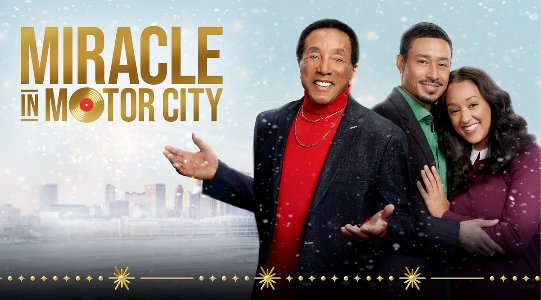
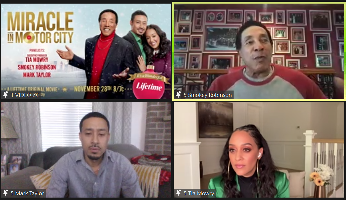 SUZANNE: I just finished watching your movie this morning. I really enjoyed it.
SUZANNE: I just finished watching your movie this morning. I really enjoyed it.


 Here’s your chance to get in on one of the few critically lauded, award-winning feature films at the upcoming gems premiering on BET HER in a couple weeks, Saturday, August 7th at 7pm ET/PT, 6pm CT. Filmmakers KELLEY KALI and DEON COLE (Black-ish star) talk about their critically lauded film,
Here’s your chance to get in on one of the few critically lauded, award-winning feature films at the upcoming gems premiering on BET HER in a couple weeks, Saturday, August 7th at 7pm ET/PT, 6pm CT. Filmmakers KELLEY KALI and DEON COLE (Black-ish star) talk about their critically lauded film, 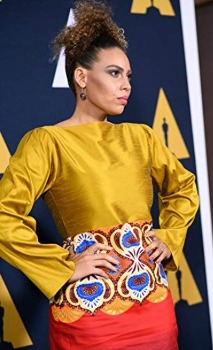 27th (Pacific).
27th (Pacific). Filmmaker Kelley Kali, one of the breakout talents in Hollywood, won the 2018 Academy Award for Best Film for her narrative short, Lalo’s House, and brought in a number of talented filmmakers including co-director Angelique Molina, fellow USC Cinema School graduate Roma Kong as well as award-winning producer Capella Fahoome. Kelley developed the plot line of “I’m Fine (Thanks For Asking)” looking around Los Angeles as the Covid crisis started to shutter businesses, diminish earnings and jeopardize so many single parents ability to pay rent and feed their families late last spring. The storyline centers on a recently widowed mother who becomes homeless and convinces her 8-year-old daughter that they are only camping for fun while she works to get them off the streets.
Filmmaker Kelley Kali, one of the breakout talents in Hollywood, won the 2018 Academy Award for Best Film for her narrative short, Lalo’s House, and brought in a number of talented filmmakers including co-director Angelique Molina, fellow USC Cinema School graduate Roma Kong as well as award-winning producer Capella Fahoome. Kelley developed the plot line of “I’m Fine (Thanks For Asking)” looking around Los Angeles as the Covid crisis started to shutter businesses, diminish earnings and jeopardize so many single parents ability to pay rent and feed their families late last spring. The storyline centers on a recently widowed mother who becomes homeless and convinces her 8-year-old daughter that they are only camping for fun while she works to get them off the streets.

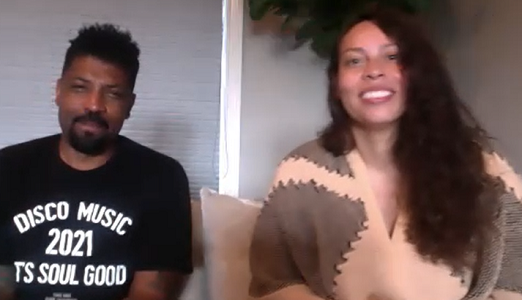




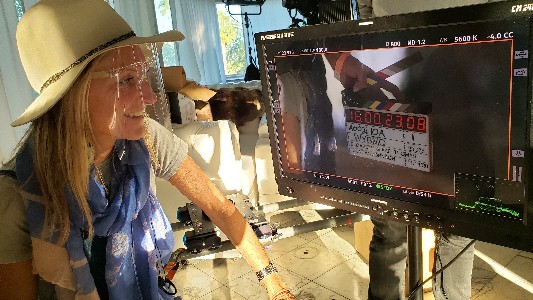


 r-ending nightmare. Cybil is also the director of this mind-bending horror film that follows ‘Thomas’ (Tom Sizemore), an alcoholic married doctor who has a one-night stand with ‘Nina’ (Cybil).
r-ending nightmare. Cybil is also the director of this mind-bending horror film that follows ‘Thomas’ (Tom Sizemore), an alcoholic married doctor who has a one-night stand with ‘Nina’ (Cybil). Cybil Lake is an American actor and filmmaker who has significant experience in the TV and film world. Her TV credits include “The Black List” with James Spader on NBC, “The Following” with Kevin Bacon on Fox, and “Show Me a Hero” directed by Academy Award Winner Paul Haggis for HBO. She has written, directed, and acted in numerous shorts, including An Echo Remains, which she screened at the Cannes Film Festival. Cybil was selected by NBC for a new filmmaker’s program, The Screening Room in 2010. She’s a graduate of NYU’s Tisch School of the Arts where she majored in film and acting.
Cybil Lake is an American actor and filmmaker who has significant experience in the TV and film world. Her TV credits include “The Black List” with James Spader on NBC, “The Following” with Kevin Bacon on Fox, and “Show Me a Hero” directed by Academy Award Winner Paul Haggis for HBO. She has written, directed, and acted in numerous shorts, including An Echo Remains, which she screened at the Cannes Film Festival. Cybil was selected by NBC for a new filmmaker’s program, The Screening Room in 2010. She’s a graduate of NYU’s Tisch School of the Arts where she majored in film and acting.
